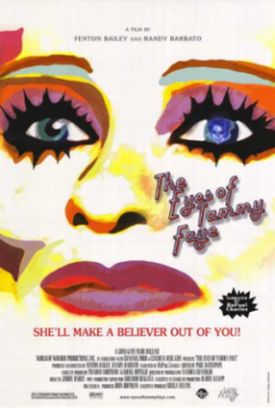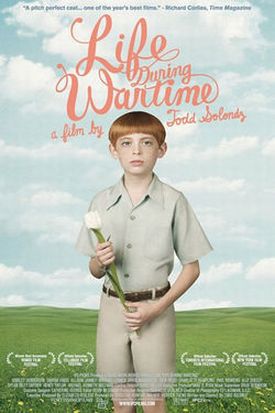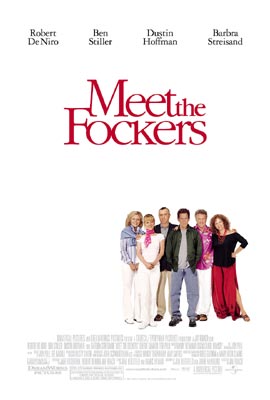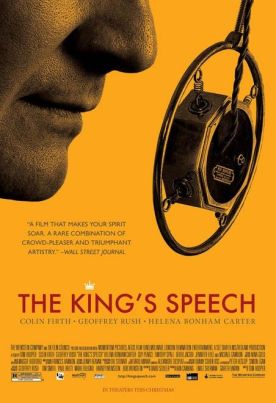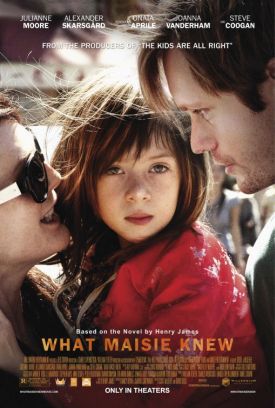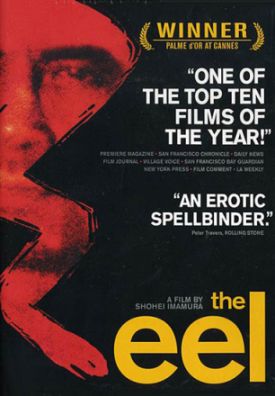Eyes of Tammy Faye, The
The Eyes of Tammy Faye, a documentary by Fenton Bailey and Randy Barbato, is worth seeing in the limited sense in which many inferior documentaries are worth seeing—that is, as a document of cultural or sociological interest. I confess to a further enjoyment of the campy set-up—including narration by RuPaul Charles and little Shari Lewis-style hand puppets who announce in unison the titles of the film’s various segments—which many readers may not find so much to their taste. But one’s consciousness of a certain guilt in supporting this attempt to rehabilitate someone who is clearly a very bad woman on the sole and sufficient ground that she makes, through her very public sufferings, her ill-usage at the hands of men and her conspicuously overdone make-up, a plausible gay icon (if such a thing is not a contradiction in terms) should also be mentioned.
Tammy Faye Bakker Messner (as she now styles herself) also has a surprisingly creditable history, in someone coming from what used to be thought of anyway as the “fundamentalist” Christian right, of sympathy with gay causes and especially with AIDS sufferers. She uses her frequently-employed weepy voice to deplore as un-Christian any refusal “to put your arm around them and show them you care.” For a brief period she made a TV comeback co-hosting a talk-show with a gay man called Jim J. Bullock. “I never thought of him as gay; I just thought of him as another person whom I love,” says Tammy Faye with typical disingenuousness. It must have been obvious even to her that there would have been no market for the show—there was little enough of one in any case—had the man not been gay.
From the other side, there is a surprising sympathy on the part of the film-makers with a congregation from Oral Roberts University who at one point in the film receive an ambiguously penitent Tammy Faye back into the Christian fold. But just as we are beginning to think that maybe we all can just get along, the film enthusiastically accepts Tammy Faye’s demonization of Jerry Falwell as the sole responsible agent in the downfall of herself and her former husband Jim Bakker, of whom she speaks nothing but well. Falwell, the film’s narration tells us, “was the founder of the Moral Majority and played a key role in Reagan’s election”—besides being “against abortion and the gay rights movement.” It is enough, presumably, to lend plausibility to the claim that he swindled Jim and Tammy Faye out of their ministry, their TV satellite and Heritage USA.
Under the circumstances, it seems almost generous on Falwell’s part to decline to answer such allegations on camera by describing Tammy Faye as “a loony whose elevator did not go to the top floor.” Certainly the suggestion that she is insane, unlikely as it may be to be true, is a polite and even charitable way of avoiding what might otherwise seem to be the inevitable reference to a career spent bilking poor people out of significant portions of their disposable cash so that she and her husband and their dogs and children could be rich and live as kings (though not, alas, some of their fellow TV hucksters) would be ashamed to live. Whatever may be the truth of the specific charges on which Bakker was sent to jail—and naturally enough the film interviews the author of an exculpatory book about them—this fact is evidence of wrong-doing, by any standard beyond the legal, that is irreducible and irrefutable.
Also, alas, irrelevant and ignorable. The most emblematic moment in this emblematic film comes when Charles Sheperd, the journalist from the Charlotte Observer who was largely responsible for initiating the investigation that put Jim behind bars, is shown meeting with a tearful Tammy Faye, giving her a big hug, assuring her that he didn’t mean to write anything inaccurate about her and Jim and finally, incredibly, asking her to autograph his book. “Tammy wanted an apology;” says RuPaul’s narration; “Charles wanted an autograph.” As both celebrity and victim, the two most venerated figures of our age, Tammy Faye has found it easy to make people forget how she came to be both. Even Pat Boone is shown on camera comparing her to Hillary Clinton, “because these two women have suffered by what their husbands may have done.”
Welcome to the Age of Bill Clinton, in which all apologies are defiant and all defiances are apologies. “If you don’t stand for something, you’ll fall for anything,” said Tammy Faye, inadvertently summing up for an interviewer from the Los Angeles Times the principle on which her fame and fortune were founded. “And I stand for the right to be myself, and I stand for the right of every person to be who they are.” She hasn’t come all that far from the brand of me-centered pseudo-Christianity she used to preach in the heyday of the PTL (variously known as Praise the Lord and Pass the Loot) television ministry, but the culture has undoubtedly come a long way to meet her.
Discover more from James Bowman
Subscribe to get the latest posts to your email.

